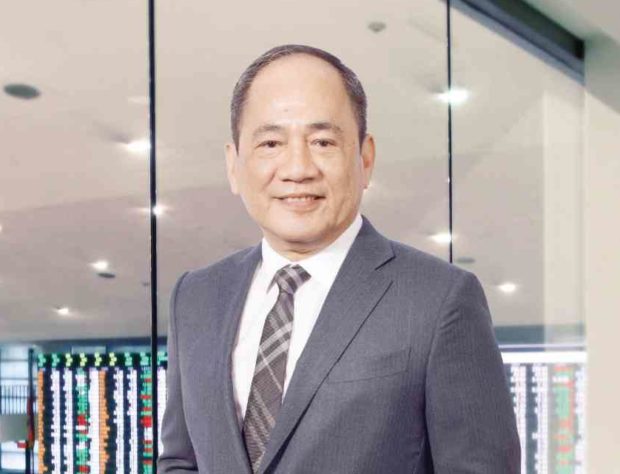The Philippine Stock Exchange (PSE) plans to prohibit infinite voluntary trading suspension as part of efforts to improve the quality of issuers in the bourse by weeding out dormant companies.
This goes hand in hand with a long-running proposal to raise the minimum public ownership of listed companies to 25 percent from 10 percent at present, Ramon Monzon, president of PSE, said in a briefing after the PSE’s stockholders meeting on Friday.
Monzon said the PSE had so far identified eight to 10 dormant companies that could be removed from the registry.
In recent weeks, the PSE has initiated delisting proceedings against two companies: Primetown Property Group Inc. and the defunct Export & Industry Bank (EIB), which will be delisted by July 25 and July 18, respectively. EIB has been on trading suspension for 12 years now while Primetown has not traded for 18 years.
Monzon said he had mandated the new head of the PSE’s issuer regulation division, lawyer Marigel Garcia, to “clean up all these listed companies that have suspended trading for a long time.”
He said the PSE would initiate more delisting proceedings in the next few weeks.
A company that has been involuntarily delisted from the PSE cannot apply for relisting within five years. But the more painful sanction is that the directors and executive officers of such company are disqualified from becoming directors or executive officers of any company applying for listing within the same five-year period. In the case of controversial agribusiness firm Calata Corp. – which was delisted in 2017 – its head, Joseph Calata, was perpetually banned from leading or sitting on the board of any other PSE-listed company.
Monzon said one of the top reasons for delisting was capital deficiency or negative stockholders equity. “You have three years to correct that, otherwise, you will be delisted,” he said.
Also, there are companies that have failed to file annual reports and other reports for years, he noted.
“There are those that have applied for voluntary suspension and have not traded (again). One of the things we’re basically looking at is having a rule that will set a time period. If you don’t reopen for trading in three or five years, we’re going to delist you,” Monzon said.
As it is now, Monzon said that with about 270 publicly-listed companies, the PSE had the lowest number of listed issuers in the region. But even out of this relatively small number, he noted that only about 80 or 90 were being actively traded in the local market.
So while the PSE would like to see more companies going public, Monzon said he would rather have just 90 companies that were trading robustly.
“I’d rather focus on the project of increasing the public ownership (of listed firms0 to 25 percent eventually,” he said.
However, he reckoned that raising the minimum public float was something that could not be implemented overnight because it could siphon off liquidity in the market.
For new companies undertaking initial public offerings, they are required to bring at least 20 percent of their shares to public hands.
For a potential increase in mandatory public ownership to 25 percent, giving companies time to comply within three to five years may be suitable, Monzon said.
Since the turn of the millennium, 14 companies have been delisted from the PSE for various reasons, namely: Melco Resorts & Entertainment (2019); Calata Corp. (2017); Gotesco Land (2016); Marsteel Consolidated (2015); Alphaland Corp. (2014); PNOC Exploration (2013); Banco Filipino (2011); Wise Holdings (2011), Sanitary Ware Manufacturing (2011); Mondragon Philippines (2011); Landoil Resources (2004); Reynold Philippines (2003), Nasipit Lumber (2003) and San Carlos Milling (2001).
